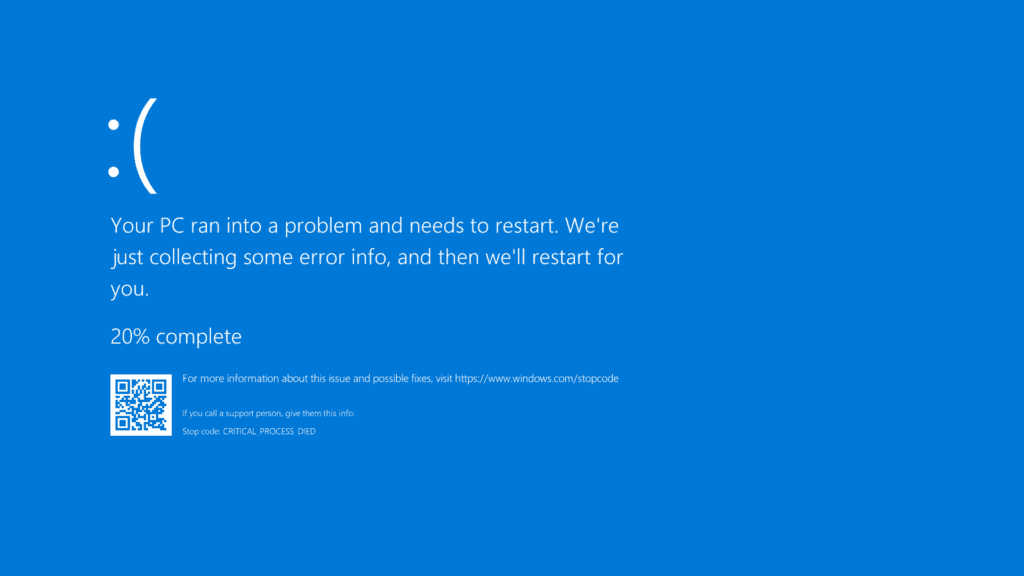A PC that freezes randomly can disrupt work, gaming, and everyday use. These freezes may last a few seconds or force a hard restart, and they’re often caused by hardware stress, software conflicts, or system misconfiguration. This guide explains why PCs freeze randomly and provides step-by-step solutions to fix the problem for good.
Why Does a PC Freeze Randomly?
Random freezing usually points to one or more of the following issues:
- Overheating CPU or GPU
- Insufficient RAM or high memory usage
- Outdated or corrupted drivers
- Failing hard drive or SSD
- Power supply instability
- Windows or software conflicts
- Malware or background processes
- Overclocking or unstable system settings
Identifying the root cause is the key to a permanent fix.
Step 1: Check for Overheating
Overheating is one of the most common causes of random freezing.
How to Check Temperatures
- Use tools like Task Manager, HWMonitor, or BIOS readings
- Normal CPU temps: 30–70°C
- Normal GPU temps: 40–85°C
Fix Overheating
- Clean dust from fans and vents
- Ensure proper airflow inside the case
- Replace thermal paste if the system is old
- Avoid using the PC on soft surfaces (laptops)
Step 2: Check RAM and Memory Usage
Insufficient or faulty RAM can cause sudden freezes.
What to Do
- Open Task Manager → Performance → Memory
- Close unnecessary background applications
- Run Windows Memory Diagnostic
- Reseat RAM sticks or test one stick at a time
If your system regularly uses over 80% memory, consider upgrading RAM.
Step 3: Update or Roll Back Drivers
Corrupted or outdated drivers—especially GPU drivers—can cause instability.
Key Drivers to Check
- Graphics card drivers
- Chipset drivers
- Storage and SATA/NVMe drivers
Fix
- Update drivers from official manufacturer websites
- If freezing started after an update, roll back the driver
Step 4: Check Storage Health (HDD / SSD)
Failing drives can cause the system to lock up.
How to Check
- Run chkdsk in Command Prompt
- Use SMART monitoring tools
- Watch for slow load times or clicking sounds (HDDs)
Fix
- Free up disk space
- Replace failing drives
- Ensure Windows is installed on a healthy SSD
Step 5: Scan for Malware
Malware can overload system resources and freeze your PC.
What to Do
- Run Windows Defender full scan
- Use reputable anti-malware tools
- Remove suspicious startup programs
Step 6: Disable Overclocking
Unstable overclocks are a frequent cause of random freezing.
Fix
- Reset BIOS/UEFI settings to default
- Disable CPU, GPU, and RAM overclocks
- Enable XMP only if your system is stable
Step 7: Check Power Supply and Power Settings
An inadequate or failing PSU can cause freezes without warning.
What to Check
- PSU wattage matches system requirements
- No random shutdowns or reboots
- Power cables are secure
Windows Power Settings
- Use Balanced or High Performance
- Disable aggressive power-saving options
Step 8: Update Windows and System Files
Corrupted system files can cause instability.
Fix
- Install all Windows updates
- Run these commands in Command Prompt (Admin):
sfc /scannow DISM /Online /Cleanup-Image /RestoreHealth
Step 9: Check Event Viewer for Errors
Windows logs often reveal the cause of freezes.
How to Use Event Viewer
- Open Event Viewer
- Check Windows Logs → System
- Look for critical or recurring errors
Search error codes online to identify specific problems.
Step 10: Test in Safe Mode
Safe Mode runs Windows with minimal drivers.
- If the PC doesn’t freeze in Safe Mode, the issue is likely:
- Third-party software
- Driver conflicts
- Startup programs
Disable startup apps one by one to find the cause.
Step 11: Perform a Clean Boot or System Reset
Clean Boot
- Disable all non-Microsoft services
- Restart and test stability
Last Resort: System Reset
- Back up important data
- Reset Windows while keeping files
If freezing continues after a reset, hardware is likely the issue.
How to Prevent Random Freezing in the Future
- Keep drivers and Windows updated
- Clean your PC every 3–6 months
- Monitor temperatures regularly
- Avoid unnecessary background apps
- Use a reliable power supply and surge protector
When to Seek Professional Help
You should consider professional repair if:
- Freezing occurs even in BIOS
- Storage or RAM tests fail
- PSU or motherboard issues are suspected
Final Thoughts
Random PC freezing is frustrating but rarely unsolvable. By systematically checking temperature, memory, storage, drivers, and power stability, most users can identify and fix the root cause. Follow the steps above, and your PC should return to smooth, reliable performance.







